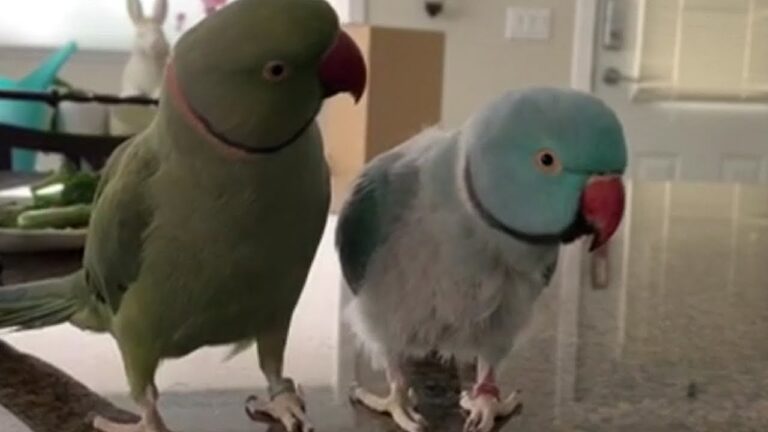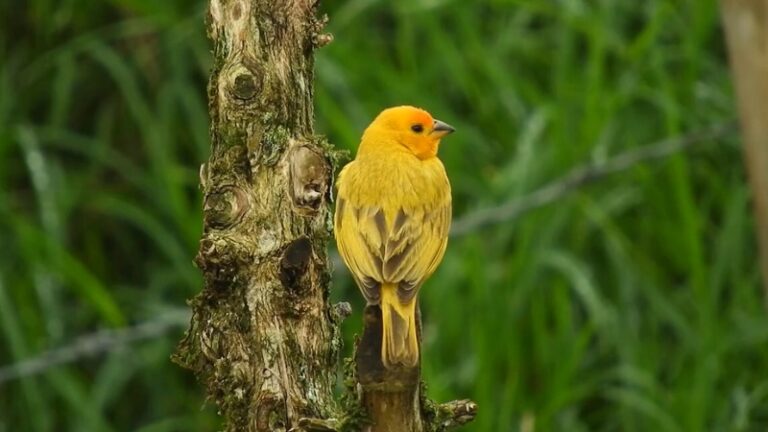What To Feed Birds From The Kitchen
Feeding birds from the kitchen can be a rewarding experience, offering a unique opportunity to connect with nature right in our backyards. However, it’s not just about tossing out kitchen scraps and hoping for the best. Responsible bird feeding involves understanding what birds can safely eat and what could be harmful to them. This article provides a comprehensive guide on feeding birds from the kitchen, emphasizing the importance of doing so responsibly to ensure the health and well-being of our feathered friends.
Understanding Bird Diets
Birds have diverse diets, and what they eat can vary greatly depending on their species, the season, and the availability of food sources. Understanding what birds naturally eat is the first step towards providing them with appropriate food from our kitchens.
What Do Birds Naturally Eat?
In the wild, birds’ diets typically include a variety of foods such as seeds, berries, nectar, insects, worms, and small animals. For example, sparrows and finches are primarily seed-eaters, while robins and thrushes eat a lot of worms and insects. Hummingbirds are known for their love of nectar, and birds of prey like hawks and eagles feed on small animals.
The diet of a bird also changes with the seasons. During spring and summer, when insects are abundant, many birds eat more insects and less of other foods. In the fall and winter, when insects are less available, they switch to eating more seeds and berries.
The Role of Human-Provided Food in Bird Diets
Human-provided food can play a significant role in the diets of birds, especially during times when natural food sources are scarce, such as in winter or during droughts. Foods from our kitchens, such as fruits, vegetables, and grains, can supplement their natural diet and provide essential nutrients.
However, it’s important to note that not all human foods are suitable for birds. Some can be harmful or even fatal. Therefore, it’s crucial to know what foods are safe to feed birds and which ones to avoid.
Furthermore, while human-provided food can be a helpful supplement, it should not replace natural food sources. Birds need a varied diet to get all the nutrients they need, and they also need to engage in natural foraging behaviors for their physical and mental well-being. Therefore, feeding birds from the kitchen should be done responsibly, ensuring we are providing appropriate foods and not causing over-reliance on human-provided food.
Safe Foods to Feed Birds
Feeding birds from the kitchen can be a wonderful way to observe these creatures up close and contribute to their diet. However, it’s crucial to ensure that the food we offer is safe for bird consumption. Here’s a list of kitchen scraps that are generally safe for birds and can be a valuable addition to their diet.
Fruits
Many birds enjoy fruits, which can provide essential vitamins and hydration. Apples, bananas, grapes, and berries are all good choices. Remember to cut the fruits into small, manageable pieces before offering them to the birds. Avoid feeding birds any fruit that has been treated with pesticides or other chemicals.
Vegetables
Vegetables can also be a nutritious addition to a bird’s diet. Leafy greens, peas, carrots, corn, and cooked potatoes are all safe for birds to eat. As with fruits, ensure the vegetables are clean and cut into small pieces.
Grains
Grains such as rice, oats, and quinoa can be a valuable source of carbohydrates for birds. Both cooked and uncooked grains are safe for birds, but avoid any grains that have been seasoned or cooked with other ingredients that may be harmful to birds, such as onions or garlic.
Bread
While bread is not harmful to birds, it doesn’t provide much nutritional value and can fill birds up, causing them to eat less of other, more nutritious foods. If you choose to feed birds bread, opt for whole grain bread and offer it in moderation.
Nuts and Seeds
Unsalted nuts and seeds can be a good source of protein and fats for birds. Sunflower seeds, pumpkin seeds, and peanuts are all safe options. However, ensure the nuts and seeds are unsalted, as too much salt can be harmful to birds.
Importance of Providing Fresh and Clean Food
When feeding birds from the kitchen, it’s crucial to provide fresh and clean food. Spoiled or contaminated food can cause illness or even death in birds. Always remove any uneaten food after a few hours to prevent it from spoiling, especially in hot weather. Also, clean your bird feeders regularly to prevent the growth of mold and bacteria.
Remember, while kitchen scraps can supplement a bird’s diet, they should not replace natural food sources. Birds need a varied diet to get all the nutrients they need, and they also need to engage in natural foraging behaviors for their physical and mental well-being. Therefore, feeding birds from the kitchen should be done responsibly, ensuring we are providing appropriate foods and not causing over-reliance on human-provided food.
Foods to Avoid
While many kitchen scraps can be a nutritious addition to a bird’s diet, there are certain foods that are harmful to birds and should be avoided. Here’s a list of some common foods that are not safe for birds.
Chocolate
Chocolate is toxic to many animals, including birds. It contains theobromine and caffeine, which can cause heart problems, seizures, and even death in birds.
Avocado
All parts of the avocado plant, including the fruit, are toxic to birds. Avocados contain a substance called persin, which can cause respiratory distress, heart failure, and death in birds.
Salt
Birds have a low tolerance for salt. High-sodium foods can lead to excessive thirst, dehydration, kidney dysfunction, and even death in birds.
Onions and Garlic
Onions and garlic contain sulfides, which can cause anemia in birds. Even cooking does not eliminate the risk, so it’s best to avoid feeding birds any food containing onions or garlic.
Alcohol and Caffeine
Alcohol and caffeine are both highly toxic to birds and can cause a range of serious health problems, including heart issues, nervous system disorders, and death.
Why These Foods Are Harmful
These foods are harmful to birds due to their chemical composition. Birds have different metabolic rates and digestive systems compared to humans, making them more susceptible to certain toxins. Even small amounts of these harmful foods can cause serious health problems or even death in birds. Therefore, it’s crucial to ensure that the food we offer to birds is safe and suitable for their consumption.
Special Foods for Specific Birds
Different bird species have different dietary preferences, and offering specific foods can help attract certain species to your yard.
Nectar for Hummingbirds
Hummingbirds are known for their love of nectar. You can make a simple homemade nectar by dissolving one part white sugar in four parts water. Avoid using honey, brown sugar, or artificial sweeteners, as these can be harmful to hummingbirds.
Oranges for Orioles
Orioles are attracted to bright colors and sweet flavors. Sliced oranges can be a great way to attract these beautiful birds. Simply cut an orange in half and place it in a spot where orioles can easily access it.
Sunflower Seeds for Finches and Cardinals
Sunflower seeds are a favorite of many bird species, including finches and cardinals. Offering sunflower seeds in a bird feeder can attract a variety of birds to your yard.
Remember, the key to attracting a variety of birds is to offer a variety of foods. However, always ensure that the food you offer is safe and suitable for birds.
Human Impact on Bird Feeding
While feeding birds from the kitchen can be a rewarding experience, it’s important to understand the potential impacts of human feeding on bird behavior and health.
Human feeding can influence bird behavior in several ways. It can alter their natural foraging habits, potentially making them dependent on human-provided food. It can also lead to increased aggression among birds as they compete for food resources.
In terms of health, while many kitchen scraps can be nutritious for birds, some human foods are harmful to them. Feeding birds inappropriate food can lead to health problems and even death.
Tips for Responsible Bird Feeding
To minimize negative impacts and ensure we’re helping rather than harming birds, here are some tips for responsible bird feeding:
- Provide a variety of foods to ensure a balanced diet.
- Avoid feeding birds harmful foods such as chocolate, avocado, and salt.
- Keep bird feeders clean to prevent the spread of diseases.
- Don’t overfeed – provide enough food to supplement birds’ diets, not replace them.
FAQs
Here are answers to some common questions about feeding birds from the kitchen:
- What can I feed birds? Safe foods for birds include fruits, vegetables, grains, and unsalted nuts and seeds. Always provide fresh and clean food.
- What should I not feed birds? Avoid feeding birds harmful foods such as chocolate, avocado, salt, onions, garlic, alcohol, and caffeine.
- Can I feed birds bread? While bread is not harmful to birds, it doesn’t provide much nutritional value. If you choose to feed birds bread, opt for whole-grain bread and offer it in moderation.
Conclusion
Feeding birds from the kitchen can be a wonderful way to connect with nature and support our feathered friends. However, it’s crucial to do so responsibly. Understanding what foods are safe and harmful to birds, providing a variety of foods, and maintaining clean feeding areas can help ensure the health and well-being of the birds we love. Remember, our goal should be to supplement the birds’ natural diet, not replace it, and to foster their natural behaviors, not alter them.


